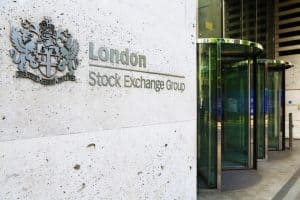 The London Stock Exchange Group (LSEG) has expanded execution options on its corporate bond trading platform with the addition of a list trading function.
The London Stock Exchange Group (LSEG) has expanded execution options on its corporate bond trading platform with the addition of a list trading function.
The list trading option will allow traders to execute multiple trades simultaneously against more than $17 billion of resting corporate bond liquidity on MTS BondsPro.
Once a list of orders are uploaded to MTS BondsPro, participants will be able to connect with liquidity sources via the platform’s anonymous all-to-all order book and then execute each trade. List trading can offer benefits to traders’ workflow, executing trades with multiple liquidity sources at the same time.
“Access to liquidity is perhaps the most pressing challenge facing participants in today’s bond markets, and flexibility and efficiency are key considerations when selecting an electronic venue,” said David Parker, head of US sales at MTS.
“The launch of list trading furthers our broader mission of maximising liquidity and minimising costs for our clients by connecting all types of counterparties on the buy and sell-side with each other in a seamless way on a single venue.”
MTS BondsPro connects over 600 broker dealers and buy-side clients for corporate and emerging market bond trading, with more than 80,000 prices currently provided to users daily. Volumes on the platform doubled from July 2017 to July 2018 and its market share has grown 10% since June 2017.
The LSEG said that growth has been driven by market participants seeking liquidity in a challenging corporate bond market where credit spreads have widened significantly.
Larry Tabb, founder of TABB Group, also commented that the reallocation of fixed income portfolios do no usually generate single bond trades, but spawn multiple transactions.
“This means that buy-side traders are typically tasked with sourcing liquidity for dozens if not hundreds of bonds, in various sizes and liquidity profiles,” Tabb said.
“Creating a more efficient list trading process will not only help institutional fixed income traders focus on large and more difficult trades, but enable investors to source liquidity from more sources and at better prices.”